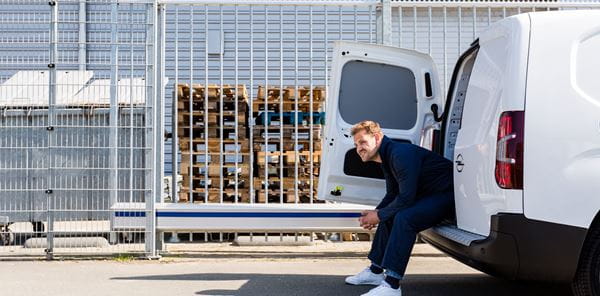
Top tips for summer driving
3 min to readDriving
If you’re planning a summer road trip it’s essential to be prepared and informed about the hazards the heat can bring.
It’s estimated that during the summer drivers clock up almost 20% more miles than they do in cold weather. To make things simple, we’ve created an easy to follow checklist for when the mercury rises.
If you’re planning a summer road trip it’s essential to be prepared and informed about the hazards the heat can bring.
It’s estimated that during the summer drivers clock up almost 20% more miles than they do in cold weather. To make things simple, we’ve created an easy to follow checklist for when the mercury rises.
Share this
Top tips for you and your passengers:
- Consider using sunscreen even while inside your vehicle, and don't forget to pack a pair of sunglasses to prevent glare and maintain clear visibility.
- Be aware that some hayfever medications can cause drowsiness. Check the label for any warnings before taking medication and driving.
- Never leave a young, elderly or vulnerable person alone in a car. Even with the window left open, the temperature inside the car can end up being double the outside temperature.
- Even with a sun-visor and window open, you should not leave your pet locked in a vehicle. As with children, dogs can suffer from heatstroke so are unable to cool themselves, and this can have fatal consequences.
- Always check the temperature of your child’s car seat. The uncovered buckles of car seats can reach such high temperatures they can cause second degree burns.
- Dehydration is as deadly as alcohol. Severe symptoms can cause dizziness, fainting and pose a risk to drivers. During summer, previous research has found there is a 146% increase in driver errors due to dehydration. Symptoms can include slower reaction times, loss of focus and muscle cramps – putting drivers and others at risk. And remember to take regular breaks during long journeys to avoid fatigue.
Top tips for your vehicle:
- Check your tyres regularly. As the day heats up, so does the road and the air in your tyres. Put a reminder on your phone to check pressures to ensure they aren’t over-pressurised.
- Avoid your car overheating and potentially damaging your engine by checking your car fluids are at the correct level. If the liquid doesn’t reach the full line on the coolant reservoir, add a 50/50 mix of water and coolant until it does.
- If you haven’t had your car battery changed in the last five years, make sure it is replaced or tested as the heat takes a heavy toll on batteries.
- In case of a breakdown, be sure to have an emergency kit in your car that includes items such as a water bottle, first aid kit, warning triangle and jump leads, as well as a reflective emergency blanket that can be used for shade.
- Read your vehicle service schedule and stick to it. In extreme heat, belts and hoses which provide air-conditioning, can crack and blister. And pay close attention to engine warning lights.
Road and Traffic:
- The hot weather can significantly affect road surfaces, leading to issues like melting tarmac. Additionally, summer thunderstorms can make surfaces even more slippery and reduce traction. Reduce your speed, maintain a safe following distance, and be cautious when braking or turning. With the arrival of festival season, the roads can become congested, resulting in frustrating traffic jams. Plan your routes in advance, taking into account any known congested areas.
Important information:
This blog was originally published on leaseplan.com website. The views expressed may no longer be current and any reference to specific vehicles or products is for reference only. This information is not a personal recommendation for any particular vehicle, product or service - if you are unsure about the suitability of a product, you should consult with an expert.
Important information:
This blog was originally published on leaseplan.com website. The views expressed may no longer be current and any reference to specific vehicles or products is for reference only. This information is not a personal recommendation for any particular vehicle, product or service - if you are unsure about the suitability of a product, you should consult with an expert.
Published at 31 May 2023
31 May 2023
Share this



